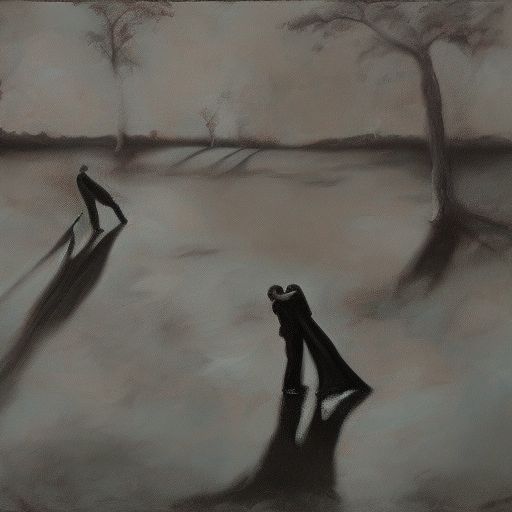Satantango (1994) – A Dark and Haunting Tale of Desperation and Decay
Main Cast and Crew:
- Director: Béla Tarr
- Writers: Béla Tarr, László Krasznahorkai
- Key Actors: Mihály Vig, Putyi Horváth, László Lugossy
- Music Director: Mihály Vig
- Director of Photography: Gábor Medvigy
- Producers: György Fehér, Joachim von Vietinghoff
Satantango, directed by Béla Tarr and based on the novel by László Krasznahorkai, is a mesmerizing and bleak masterpiece that delves into the depths of human desperation and decay. Set in a dilapidated Hungarian village, the film unfolds over the course of several rainy days, following the lives of a group of destitute villagers who are entangled in a web of deceit, greed, and despair.
The story revolves around the return of Irimiás (Mihály Vig) and Petrina (Putyi Horváth), two mysterious characters who were presumed dead. Their arrival sparks a glimmer of hope among the villagers, who see them as potential saviors from their miserable existence. However, Irimiás and Petrina have their own sinister motives, as they manipulate the villagers for their own gain.
As the film progresses, we are introduced to a range of characters, each grappling with their own demons. There is Karrer (László Lugossy), a lonely and disillusioned resident who becomes infatuated with Mrs. Schmidt (Éva Almássy Albert), the wife of the village doctor. Futaki (Miklós Székely B.), the director of the local agricultural cooperative, is consumed by his obsession with money and power. The film also explores the lives of the alcoholic doctor, the schoolteacher, and a young girl who dreams of escaping the village.
Satantango is a haunting exploration of themes such as human nature, moral decay, and the cyclical nature of life. The film’s slow and deliberate pace, captured beautifully by Gábor Medvigy’s stunning black-and-white cinematography, mirrors the desolation and hopelessness of the characters’ lives. The long takes and minimal dialogue create an atmosphere of tension and unease, drawing the audience into the bleak world of the village.
Upon its release, Satantango received critical acclaim for its uncompromising vision and technical brilliance. It won several awards, including the Caligari Film Award at the Berlin International Film Festival. The film’s legacy in cinema is undeniable, with its influence felt in the works of renowned directors such as Tarr’s protégé, László Nemes.
For viewers who appreciate slow-burning and introspective cinema, Satantango is a must-watch. It demands patience and a willingness to immerse oneself in its atmospheric world. The film’s exploration of the human condition and its unflinching portrayal of despair will leave a lasting impact on those who dare to venture into its dark depths.
Memorable Quote:
“We are all damned, but we are also free. We can choose.” – Irimiás












